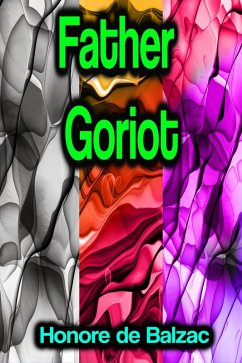Father Goriot Honore de Balzac - The novel takes place during the Bourbon Restoration, which brought about profound changes in French society; the struggle of individuals to secure upper-class status is ubiquitous in the book. The city of Paris also impresses itself on the characters especially young Rastignac, who grew up in the provinces of southern France. Balzac analyzes, through Goriot and others, the nature of family and marriage, providing a pessimistic view of these institutions.
Dieser Download kann aus rechtlichen Gründen nur mit Rechnungsadresse in A, B, BG, CY, CZ, D, DK, EW, E, FIN, F, GR, H, IRL, I, LT, L, LR, M, NL, PL, P, R, S, SLO, SK ausgeliefert werden.









